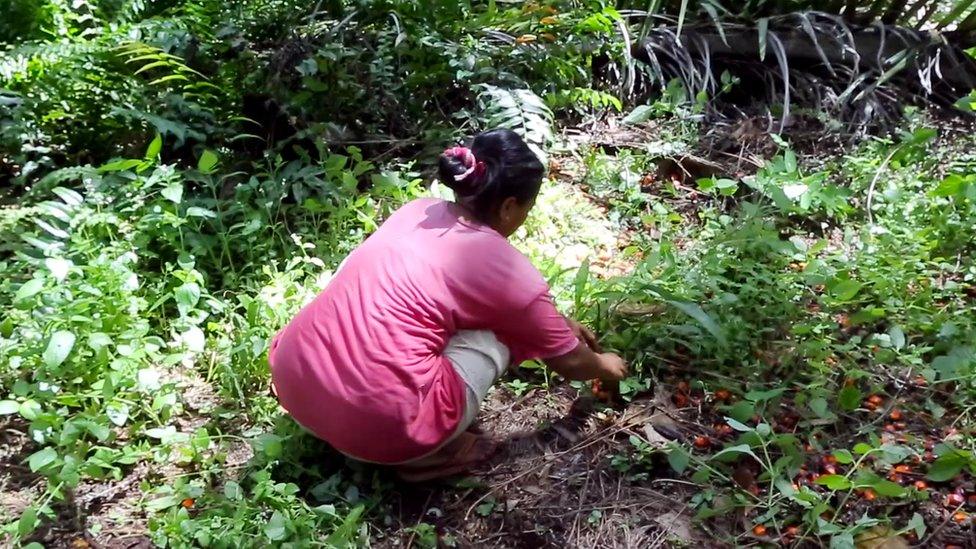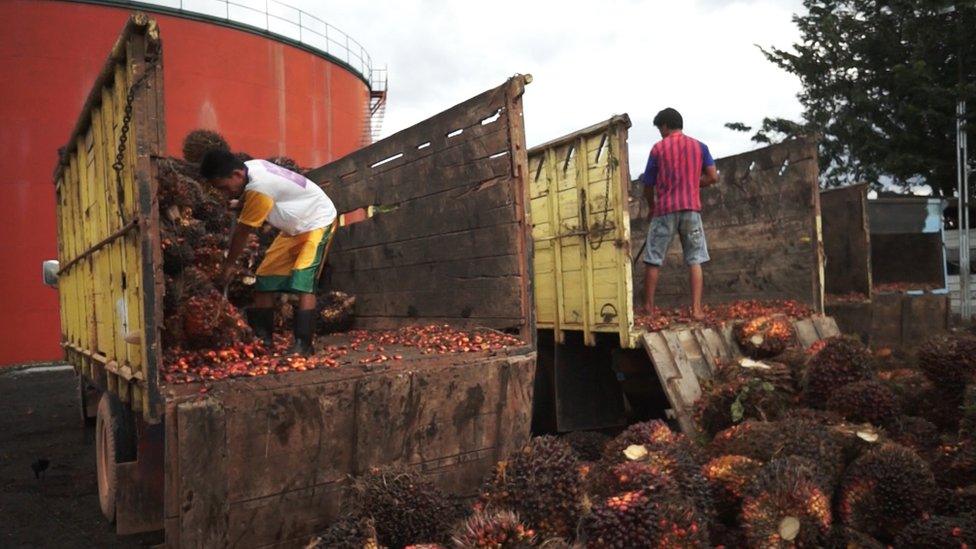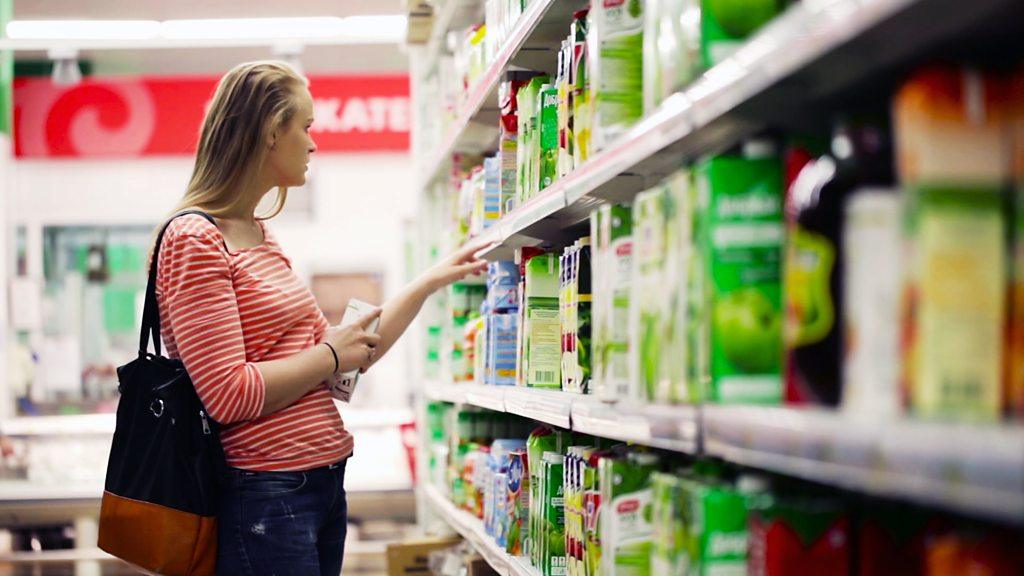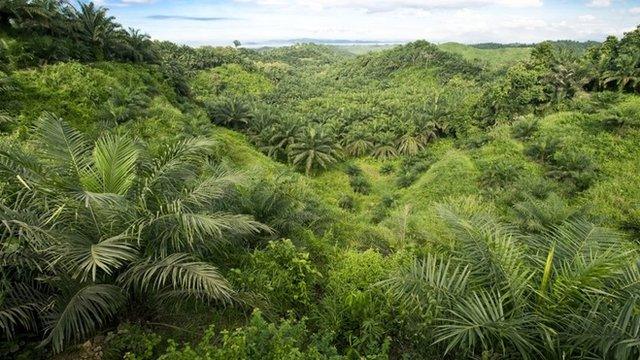Amnesty links palm oil used in household goods to child labour in Indonesia
- Published

The Amnesty International report says children are working in "hazardous" conditions
Children as young as eight are being used in Indonesia to produce palm oil found in popular household products, according to Amnesty International.
Unilever, Colgate-Palmolive, Kellogg's and Nestle are among those linked to Singapore-based company Wilmar, the human rights group says.
The Amnesty report alleges that children as young as eight are working in "hazardous" conditions in Indonesia.
Wilmar said it was carrying out an "assessment" of the findings.
It was, it said, "aware of the issues" raised by Amnesty.
The BBC has not been able to verify the report's findings.
Amnesty researchers investigated the working conditions at plantations in the Indonesian regions of Kalimantan and Sumatra.
It found that the palm oil produced at the sites for the company Wilmar had been sold on to manufacturers that produce items ranging from toothpaste and cosmetics to ice-cream.
The report "will shock any consumer who thinks they are making ethical choices" when selecting products that claim to use sustainable palm oil, Amnesty senior investigator Meghna Abraham said.
"Something is wrong when nine companies turning over a combined revenue of $325bn [£260bn] in 2015 are unable to do something about the atrocious treatment of palm oil workers."

Children aged between eight and 14 are working on plantations in Indonesia, Amnesty says
The report, external details children aged between eight and 14 carrying out physical labour on plantations in Indonesia without safety equipment in areas exposed to pesticides.
Some of the children had dropped out of school to work with parents, while others worked in the afternoons, at weekends and during holidays, Amnesty said.
It added that its investigation had found that some plantation workers were earning as little as $2.50 a day.
In response to the report, Wilmar said it had already been carrying out an "internal assessment" of its supply practices before being approached by Amnesty.
"We acknowledge that there are ongoing labour issues in the palm oil industry, and these issues could affect any palm company operating in Indonesia," the company said, adding that the report was welcome as it helped "highlight labour issues" within the trade.
What do the companies say?
Palm oil can be found in everyday items ranging from peanut butter and chocolate to instant noodles
Amnesty said that seven of the nine companies mentioned in the report had admitted that they bought palm oil through Wilmar's Indonesian operations:
Unilever, which produces Knorr soups, Dove cosmetics and Pot Noodles, promised to work with its partners to address "these deeply concerning social issues"
Kellogg's cited "traceability" in the supply chain as a contributing factor when failing to identify abuses at the plantations; it said it would talk to its suppliers and cease to use them if concerns were "not adequately addressed"
Colgate and Nestle told Amnesty that none of the products listed by the organisation contained palm oil linked to Wilmar's Indonesian operations
Amnesty's business and human rights programme director, Peter Frankental, said human rights abuses linked to any supply chain should result in a product being viewed as "defective".
"Using mealy-mouthed excuses about 'traceability' is a total cop-out from these companies," he said. "You can be sure that if one these companies' products were contaminated and had to be taken off the shelves of supermarkets, they would ensure that they could trace the source to specific plantations."
- Published30 November 2016

- Published3 September 2015

- Published1 April 2016
